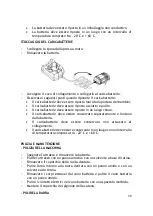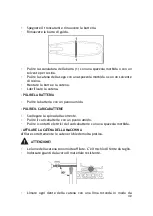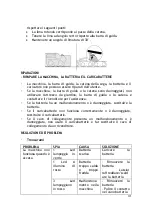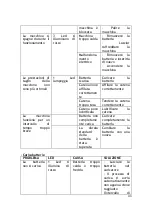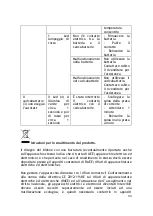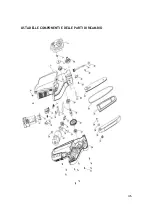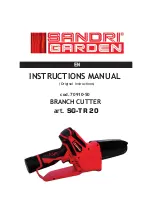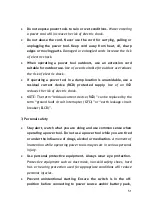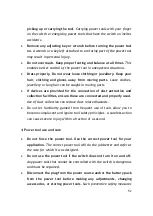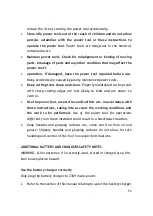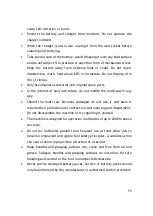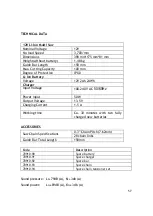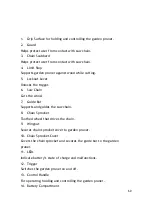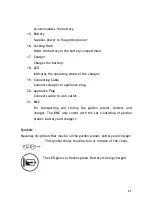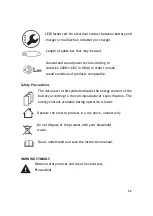
51
•
Do not expose power tools to rain or wet conditions.
Water entering
a power tool will increase the risk of electric shock.
•
Do not abuse the cord. Never use the cord for carrying, pulling or
unplugging the power tool. Keep cord away from heat, oil, sharp
edges or moving parts.
Damaged or entangled cords increase the risk
of electric shock.
•
When operating a power tool outdoors, use an extension cord
suitable for outdoor use.
Use of a cord suitable for outdoor use reduces
the risk of electric shock.
•
If operating a power tool in a damp location is unavoidable, use a
residual current device (RCD) protected supply.
Use of an RCD
reduces the risk of electric shock.
•
NOTE: The term “residual current device (RCD)” can be replaced by the
term “ground fault circuit interrupter (GFCI)” or “earth leakage circuit
breaker (ELCB)”.
3)
Personal safety
•
Stay alert, watch what you are doing and use common sense when
operating a power tool. Do not use a power tool while you are tired
or under the influence of drugs, alcohol or medication.
A moment of
inattention while operating power tools may result in serious personal
injury.
•
Use personal protective equipment. Always wear eye protection.
Protective equipment such as dust mask, non-skid safety shoes, hard
hat, or hearing protection used for appropriate conditions will reduce
personal injuries.
•
Prevent unintentional starting. Ensure the switch is in the off-
position before connecting to power source and/or battery pack,



